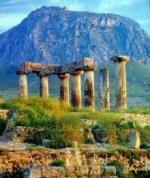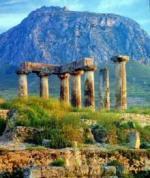Does America Have a National Covenant With YHWH? No, We Do Not!
 Wednesday, June 19, 2013 at 02:14PM
Wednesday, June 19, 2013 at 02:14PM  In his best selling 1977 book, The Light and the Glory: Did God have a plan for America?, Peter Marshall writes:
In his best selling 1977 book, The Light and the Glory: Did God have a plan for America?, Peter Marshall writes:
That a drought could be broken, or an Indian attack averted, by corporate repentance is an idea that sounds alien to many Christians today. Yet it was central to the faith which built this country, and is one of the most prominent, recurring themes in the Bible. One of the most familiar examples is, "If my people who are called by my name humble themselves, and pray and seek my face, and turn from their wicked ways, then I will hear from heaven, and will forigve their sin and heal their land" (2 Chronicles 7:14).
Accepting Marshall's untenable hermeneutic (he ignores the fact that God's "national" covenant was made with Israel only), it is quite common to hear well-intended Christians claim that America is a “Christian nation” and in doing so appeal to biblical passages such as that just cited by Marshall. Because our Lord’s promise of divine protection is given to the church (Matthew 16:18), the temptation is ever-present for Christians to mistakenly assume that our Lord’s promise of protection extends beyond the church they attend to the national interests and policies of the nation in which they live. God's plan for our nation properly falls under the category of "providence" not "covenant."
The claim that “God is on our side” often comes to fruition when politically active American evangelicals see themselves in a “culture war”–contending with secular-progressives for the soul of the nation. In the heat of battle, Christians invoke covenant promises made by God to Israel, thinking these promises apply to the United States because they mistakenly believe that the United States has some sort of covenant relationship with YHWH as did Israel. This tendency is one of the key indicators of the popular but erroneous assumption that American is a Christian nation because it was founded on “biblical principles” and therefore possesses a unique relationship to God, just as Israel did under the Old Covenant.  But America has no national covenant with God, as did Israel under the covenant God made with his chosen people at Mount Sinai. This fact presents a serious problem for those who assume that the promises God made to ancient Israel somehow apply to the United States. Covenant promises of blessing and curse which were given to Israel in a particular biblical context cannot be applied to contemporary political issues given the role such covenant blessings and curses played in Israel’s unique history.
But America has no national covenant with God, as did Israel under the covenant God made with his chosen people at Mount Sinai. This fact presents a serious problem for those who assume that the promises God made to ancient Israel somehow apply to the United States. Covenant promises of blessing and curse which were given to Israel in a particular biblical context cannot be applied to contemporary political issues given the role such covenant blessings and curses played in Israel’s unique history.
One such example of applying these covenant promises to modern America can be found on the website for the National Day of Prayer, where we read the following (echoing the previous words of Peter Marshall):
Our goal is to see communities transformed across America. That happens one family at a time. We know lives are being changed. We see the reports and statistics everyday (read Answered Prayer). We pray in expectation knowing that God can and will make a difference if we seek Him, turn from our ways and repent (II Chronicles 7:14).
The stated desire of the national day of prayer is the transformation of communities and individuals. Biblical support is taken from 2 Chronicles 7:14. sadly, this passage is cited apart from any consideration of the redemptive-historical context in which the verse originally appears–the dedication of Solomon’s temple (2 Chronicles 6-7), specifically God’s private revelation to Solomon after the public manifestation of fire in the previous verses (2 Chronicles 7:1-3).
If America's founding fathers could repent and seek the face of God, as instructed by the Chronicler, so as to avoid drought or Indian attack, why shouldn't we? Marshall's plea has been heard by many. Those who see themselves in the midst of a culture war, or who are seeking a national revival, often affirm that if only God’s people living in America would act upon the covenant promises God made to Israel in 2 Chronicles 7:14, then God would spare our nation from some impending calamity–usually the election of some disagreeable political figure, or the passage of some worrisome piece of legislation, or a high court decision which is perceived to undermine Judeo-Christian values. If God made this promise to Israel during the days of Solomon, then he is still making this promise to Christians who live in America today. Right?
The invocation of 2 Chronicles 7:14, closely parallels warnings made by certain dispensationalists, who see the end-times centering around God’s program for national Israel. Biblical passages which speak of covenant blessings and curses coming upon Israel’s enemies (i.e., Genesis 12:3), are interpreted to mean that unless the United States support the modern nation of Israel (specifically in terms of the land promise given to the physical descendants of Abraham), America risks coming under God’s judgment. As one prominent evangelical in Congress contends,
I am convinced in my heart and in my mind that if the United States fails to stand with Israel, that is the end of the United States . . . [W]e have to show that we are inextricably entwined, that as a nation we have been blessed because of our relationship with Israel, and if we reject Israel, then there is a curse that comes into play. . . . We believe very strongly the verse from Genesis [Genesis 12:3], we believe very strongly that nations also receive blessings as they bless Israel. It is a strong and beautiful principle [From a speech given by Congresswoman Michele Bachman in February 2010 to the Republican Jewish Coalition].
Although it is believed that God’s promise to those who protect Israel applies primarily to matters of the on-going Israeli-Palestinian conundrum, biblical passages referring to Israel (or to Abraham) under the Old Covenant are applied to contemporary events without the slightest hesitation. In light of Israel’s quite unique role in redemptive history, this kind of application should give us great pause.
If by “Christian nation” we mean that America has some sort of theological charter or covenant with God as set forth in a biblical passage such as 2 Chronicles 7:14, we are sadly mistaken. 2 Chronicles 7:14 applied to Israel in the days of Solomon when God’s glory filled the temple he had just dedicated to YHWH. Passages such as this one are invoked the way they are because of a serious theological misunderstanding–the confusion of promises made regarding the kingdom of God with God’s providential purposes for the civil kingdom. Unless we are willing to rip the passage from its context, it cannot be invoked as a promise applying to modern America. In terms of our national relationship to God, America is every bit as “secular” as is Saudi Arabia, Iran, China, or even Israel, for that matter. America is not a divinely-ordained theocracy with either national promises or threatened curses as was true of Israel.
The reality is that the promise found in 2 Chronicles 7:14 has nothing whatsoever to do with a national revival or the current fortunes of the United States. It has everything to do with the dedication of Solomon’s temple nearly 3000 years ago.







